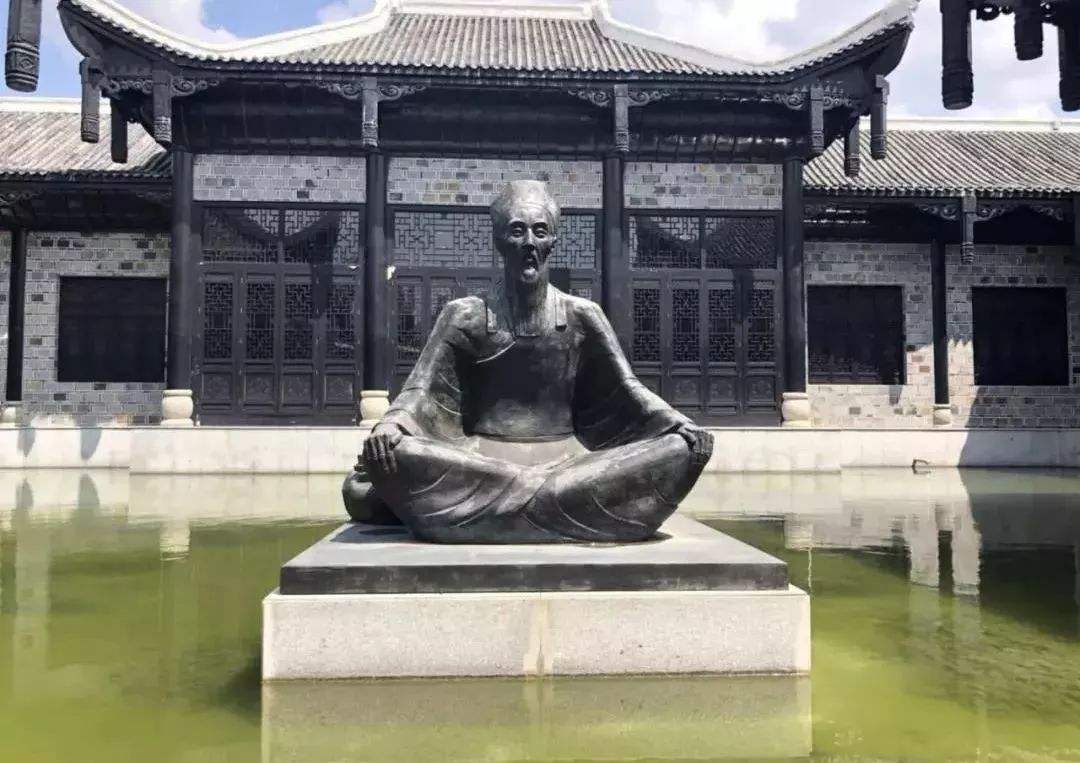An idealist thinker who founded the theory of mind
Overview
Chinese Name: 王阳明
English Name: Wang Yangming
Other Names: Wang Yun 王云, Wang Shouren 王守仁
Born: October 31, 1472
Died: January 9, 1529
Achievements:
Create “Yangming Mind Study” 创立“阳明心学”
Settle the Rebellion of King Ning 平定宁王之乱
Main Works:
Complete Works of Wang Yangming《王阳明全集》
Complete Works of Wang Wencheng《王文成公全书》

Brief Biography of Wang Yangming
Wang Yangming was an outstanding thinker, writer, strategist, and educator in the Ming Dynasty 明朝.
Wang Yangming (October 31, 1472 – January 9, 1529), a native of Yuyao 余姚, Zhejiang Province 浙江省, is a Han nationality. His real name is Wang Yun 王云, courtesy name is Boan 伯安.
In the 12th year of Hongzhi 弘治’s reign (1499), he was an advanced scholar and the head of the criminal department. He served successively as the post official of Longchang, the county magistrate of Luling, the imperial historian of Youjingdu, the governor of Nangan, the governor of Guangdong and Guangxi, the minister of Nanjing’s Ministry of War, and the imperial historian of Zuodu in Guizhou. He successively pacified Nangan, Liangguang banditry, and Zhu Chenhao’s rebellion. He was granted the title of Xinjian Bo 新建伯 and became one of the three officials who were knighted by virtue of military merit in the Ming Dynasty.

In November of the seventh year of Jiajing 嘉靖 (January 9, 1529), he died at the age of 57. Mu Zong of the Ming Dynasty succeeded to the throne and presented the posthumous title of “Wencheng v文成” to Xinjian Marquis. In the 12th year of Wanli 万历 (1584), he was worshipped at the Confucius Temple.
The basic course of the development of mind learning in the Ming Dynasty can be summarized as Chen Xianzhang 陈献章 opened, Zhan Ruoshui 湛若水 improved, and Wang Shouren 王守仁 integrated. Wang Yangming’s Yangming School of Mind later spread to Japan, Korea, and other countries. Its disciples are extremely numerous, and it is known as the “Yaojiang School”. The article is broad and prosperous. The Complete Works of Wang Wencheng 《王文成公全书》 has been handed down.
Personal Life and Major Contributions
Born extraordinary
Wang Yangming is born with a special temperament. His mother was 14 months pregnant before giving birth. Before his birth, his grandmother dreamed of the Heavenly Goddess wearing Fei Yu. She advocated that she would take a baby and fall from the sky. His grandfather named him “Yun 云” and named the place where he lived “Ruiyun Tower 瑞云楼”.

At the age of 5, Wang Yangming still can’t speak, but he has memorized the books his grandfather read. An eminent monk passed by his house touched his head and said, “What a child! It’s a pity to tell.” His father Wang Hua loved the landscape of Shaoxing 绍兴, so he left Yuyao 余姚 and moved to Shaoxing. As a child, Wang Shouren has a good family background, so he has a very superior learning environment.
Step into an official career
In the fifth year of Hongzhi (1492), Wang Yangming participated in the Zhejiang provincial examination for the first time and won the same place as Hu Shining 胡世宁 and Sun Sui 孙燧. Since then, he has made great progress in his studies. But he likes to talk about military affairs and he is good at archery. However, when he was 22 years old, he failed the imperial examination.

Li Dongyang 李东阳, the head of the cabinet, smiled at him and said, “Although you don’t win the imperial examination this time, you will win the imperial examination next time. Try to write a Fu for the next win.” Wang Shouren took up his pen and finished. All the elders in the court were amazed at his talent. At the age of 25, Wang Yangming referred to the imperial examination again and failed again. His father, the No. 1 Scholar, told him that if he failed this time, he would win next time. But he said with a smile, “You are ashamed of not becoming a champion. I am ashamed of not becoming a champion.”.
His advanced thoughts
Wang Yangming opposes the Confucian thought of Confucius and Mencius as an unchanging discipline, opposes blind obedience to feudal ethics, and emphasizes the initiative of individuals. His philosophical proposition of “conscience” and methodology of “unity of knowledge and practice” has the significance of breaking through the shackles of feudal ideas and appealing for the liberation of ideas and personality.

Wang Yangming recruited many disciples and publicized his ideas, which was known as the “Yangming School” (also known as the “Yaojiang School”). His works, including 38 volumes of Wang Wencheng’s Complete Works, were evaluated by academic circles as the earliest enlightenment philosophy in the late feudal medieval society of China.